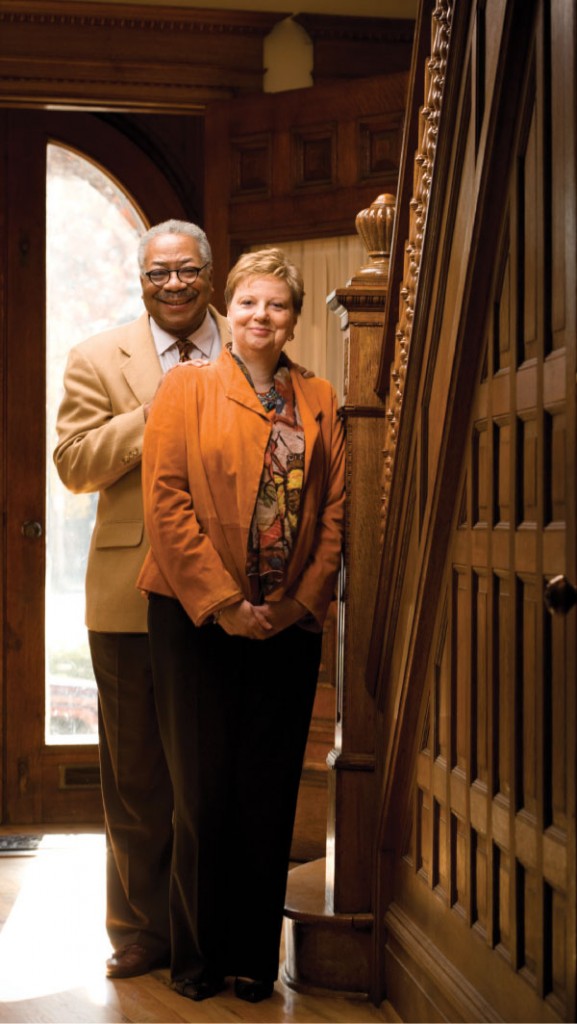
Clement Price, photographed with his wife Mary Sue Sweeney Price, in 2008. Photo by John Emerson
Few have embraced Newark with the vigor and passion of the historian and Rutgers University-Newark professor, who died on November 5 from complications following a stroke.
The celebration of Price’s life was held at Bethany Baptist Church in Newark, and was live streamed at Rutgers University, as well as 200 other locations across the U.S. and other countries.
The service was officiated by Bethany’s Reverend Dr. William Howard, Jr., who characterized Price as someone who, “believed and acted upon what we want to believe and act upon on our best days, but don’t always have the courage to do.”
At Rutgers-Newark, Price was a revered member of the faculty, honored with the school’s prestigious Board of Governors Distinguished Service designation. An educator, historical consultant and organizer, Price, a Washington, D.C., native, came to Newark following the riots of the late 1960s, adopting the city during its most tumultuous era.
Price was known as a man with an infectious energy and a great sense of purpose. Speakers, including Newark Mayor Ras J. Baraka, remembered Price’s charismatic ability to “make what mattered to him, matter to you.” Nancy Cantor, chancellor of Rutgers University-Newark, called Price “a narrator of hope” for his students and for the city. Historian Lonnie Bunch, founding director of the Smithsonian Institute, referred to Price as the “patron saint of Newark.” Other speakers included former student Andrea Barton Reeves, family member Randall Kennedy, Rabbi Matthew Gerwirtz and Imam W. Deen Shareef, who shared sentiments about Price’s generous spirit, high standards, humor, and willingness to serve.
“This city rewards people who dig in and try to contribute to the general public good,” he told New Jersey Monthly in 2008. Price served Newark with true conviction, acting as an outspoken crusader in the media, spearheading educational and cultural projects, such as the Rutgers Institute on Ethnicity, Culture, and the Modern Experience. The two-decades old institute, which he co-founded, offers public lectures, film exhibitions and other programs designed to educate and foster dialogue on social issues, history and culture. Price also co-founded the Marion Thompson Wright Lecture Series, which featured scholars such as Annette Gordon Reed, Eric Foner and Nell Painter. This year, Price was named Newark’s City Historian and was chairman of the committee for the city’s upcoming 350th anniversary celebration.
Among many other distinctions, in 2008 Price chaired President Obama’s transition team for the National Endowment for the Humanities. In 2011, Obama appointed Price as vice chair of the Advisory Council on Historic Preservation. Author of several books, most recently a three-volume work on slave culture, he wrote extensively about the city, history, race relations and modern culture.
Price and his wife, Mary Sue Sweeney Price, director of the Newark Museum for two decades, lived in a restored brownstone in the heart of the city. “No one would question our fealty to the city, or to the state for that matter… We chose to live here at a time when people were bailing out of the city. That has mattered,” said Price in 2008.
Price was always a good and gracious friend to New Jersey Monthly. On several occasions, he served as a judge for our annual Seeds of Hope awards, which honor Garden State residents for their volunteer work. And he was always there for our reporters and editors, giving his time generously when they needed his expert input or guidance on stories—especially when Newark was the subject.



